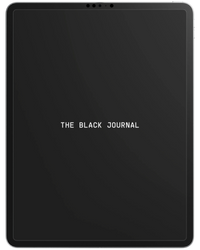You're scrolling through your feed when you see a post that makes your jaw clench, your breath catch, your fingers fly to the keyboard before your brain can intervene. The words blur as adrenaline floods your system. Your heart pounds. Your face flushes. You type furiously, delete, type again, each revision sharper, more cutting. You hit send with the righteousness of a crusader defending sacred ground, then spend the next three hours refreshing obsessively, waiting for validation or preparing for war. Sleep becomes impossible. You rehearse arguments in the shower, craft devastating comebacks while driving, feel your blood pressure spike every time your phone buzzes.
You have just experienced what neuroscientists call an amygdala hijack—and you've handed over the remote control to your nervous system to anyone who knows which buttons to press.
The phenomenon has a clinical name: emotional dysregulation triggered by perceived moral violation. But what Yale neuroscientist Molly Crockett's research reveals is far more disturbing than a simple loss of temper. When you take offense, your brain undergoes a measurable coup d'état. The amygdala, your brain's ancient alarm system, literally hijacks your prefrontal cortex—the region responsible for rational thought, perspective-taking, and impulse control. For those crucial seconds or minutes or hours, you become neurologically incapable of the very thinking that could protect you from manipulation. It's as if someone has temporarily deleted your critical thinking software while leaving your emotional reaction protocols running at maximum capacity.
The term "amygdala hijack" was coined by psychologist Daniel Goleman in his 1995 book Emotional Intelligence, but the mechanism itself is millions of years old. Your brain processes potential threats through the amygdala twelve milliseconds faster than your conscious mind can register them. In prehistoric times, this saved our ancestors from saber-toothed tigers. Today, it makes you biologically primed to be manipulated by anyone who understands how to weaponize your outrage. As I argue in The Black Book of Power, "Your outrage is a remote control that anyone can use to pilot your nervous system—every time you're offended, you're literally handing a stranger the passwords to your emotional state and begging them to choose your mood."
The Neuroscience of Losing Your Mind
Researchers at Princeton in 2001 were among the first to document what happens in your brain when moral emotions override reason. Using fMRI scanning on 39 participants, they discovered that personal moral dilemmas activate entirely different brain regions than logical problems. When you encounter something that offends your moral sensibilities, your medial frontal gyrus lights up like a Christmas tree, your posterior cingulate gyrus goes into overdrive, and your angular gyrus starts firing rapidly. Meanwhile, the dorsolateral prefrontal cortex—the part that handles abstract reasoning and working memory—goes eerily quiet. You are literally experiencing a different mode of consciousness, one where emotion becomes your thinking.
The biological cascade is swift and merciless. Within three minutes of encountering offensive content, your cortisol levels spike measurably. Your heart rate increases by an average of 15-20 beats per minute. Your blood pressure rises. Your pupils dilate. Your muscles tense for combat that never comes. Research published in 2023 found that people experiencing high trait anxiety showed a negative correlation of -0.62 between their ventromedial prefrontal cortex activation and their emotional responses. The stronger your emotional reaction, the weaker your rational oversight becomes. It's neurologically accurate to say you "lose your mind" when offended.
What makes this vulnerability so exploitable is its invisibility to the person experiencing it. You feel more certain, more righteous, more clear-headed than ever. The amygdala screams certainties. Research from 2007 demonstrated that during emotional arousal, people show increased confidence in their judgments even as their actual accuracy plummets. You're most vulnerable precisely when you feel most invulnerable. I call this the "Parasite" in your mind—the voice that feels like your truest self but is actually your deepest vulnerability.
The Cortisol Tax You Pay for Being Offended
Every moment you spend offended, your body pays a biological tax that compounds like credit card debt. Swedish researchers in 2020 studying 174 heart attack patients found something shocking: those with elevated hair cortisol (a marker of chronic stress) were five times more likely to suffer acute myocardial infarction. The median cortisol concentration in heart attack patients was 53.2 picograms per milligram compared to 22.2 in healthy controls. Chronic offense-taking literally breaks your heart.
A 2024 meta-analysis examining 43,641 participants across 33 studies found that elevated stress hormones increased cardiovascular disease risk by 63%. Norepinephrine showed a 68% increased risk. Epinephrine: 58%. Cortisol: 60%. The researchers described it as "allostatic load"—the cumulative wear and tear on your body from constantly adapting to stressors. But in our modern world, most of those stressors aren't physical threats. They're just tweets. Comments. Posts. News headlines. Your body can't tell the difference between a charging buffalo and a inflammatory Facebook post. Both trigger the same flood of stress hormones, except the buffalo would have been over in thirty seconds. The Facebook argument rages for days.
The time factor is crucial. Acute stress hormones dissipate within hours if the threat passes. But chronic activation—the kind you get from checking your phone 96 times a day and encountering offensive content on each scroll—creates a permanent state of biological alarm. Your baseline cortisol never returns to normal. Your inflammatory markers remain elevated. Your immune system stays suppressed. You age faster, heal slower, and die sooner. All because of words on a screen.
Why Outrage Feels Like Cocaine
The sinister paradox is that while offense damages your health, it simultaneously hijacks your reward system. Molly Crockett's research at Yale uncovered that expressing moral outrage activates the same dopamine pathways as cocaine or gambling. When you post that scathing response, when you share that inflammatory article with your disgusted commentary, your striatum lights up like you've just won at slots. Your brain doesn't distinguish between righteous indignation and a hit of methamphetamine. Both flood your system with the same neurotransmitter that screams "do this again!"
The mechanism is what behavioral psychologists call "intermittent variable reinforcement"—the most addictive reward schedule known to science. Sometimes your outraged post gets two likes. Sometimes it gets two thousand. You never know which pull of the lever will hit the jackpot, so you keep pulling. And pulling. And pulling. Research on dopamine systems shows this is about compulsion. Scientists can destroy 99% of an animal's dopamine receptors and it will still enjoy food, but it won't be motivated to seek it. Dopamine is about craving. So it's not so much that you don't enjoy being outraged but that you crave the next hit of outrage.
A 2021 study from Science Advances tracked social media users across months and found that receiving social feedback for expressing moral outrage increased future outrage expression by 13% per positive interaction. Users literally learned to be more offended over time. The platforms discovered this before the scientists did. Facebook's internal documents revealed they initially weighted the "anger" reaction five times more than a "like" in their algorithm because it drove unprecedented engagement. They only reduced it when the toxicity became undeniable. But the damage was done—billions of users had been trained like laboratory rats to express maximum outrage for maximum reward.
The Business Model Built on Your Nervous System
Silicon Valley didn't stumble onto outrage by accident. They reverse-engineered it with the precision of a Swiss watch. Brady and colleagues at NYU in 2017 analyzed 12.7 million tweets and found each moral-emotional word increased retweet probability by 20%. Just one word. "Disgusting" instead of "bad." "Evil" instead of "wrong." Twenty percent more viral spread per word. The platforms took note. By 2018, Facebook's algorithm explicitly rewarded what they called "meaningful social interactions"—corporate speak for arguments. Comments with high emotional valence got five times the distribution weight. Angry reactions spread content to 3.4 times more feeds than likes.
The numbers are staggering. MIT researchers in 2018 studied 126,000 news stories shared by 3 million people over 11 years. False news reached 1,500 people six times faster than truth. Lies were 70% more likely to be retweeted. Political lies spread three times faster than any other false content. Not because of bots—when they removed all automated accounts, the pattern held. Humans preferentially spread outrage-inducing falsehoods. We are the algorithm's willing accomplices.
The economic logic is ruthless. Google and Meta generate over $200 billion annually from advertising. Every second you spend angry is another ad impression. Every fight you have is more behavioral data to sell. Research from 2021 found that posts expressing out-group animosity received 67% more engagement than in-group positive posts. Division literally pays better than unity. The platforms discovered that turning humans into perpetual outrage machines was the most profitable business model in history. As I note in The Black Book of Power, "The entire media ecosystem is built on your predictable offense response— they engineer emotional hijackings."
The Dark Psychology of Weaponized Offense
Professional manipulators understand your offense response better than you do. Research from 2020 found that Machiavellianism was the strongest predictor of emotional manipulation tactics in men, while all Dark Triad traits—narcissism, psychopathy, and Machiavellianism—predicted manipulation in women. They don't stumble onto your triggers by accident. They map them like cartographers charting territory.
The playbook is consistent across contexts. First, they test your boundaries with micro-provocations, watching which topics make you flinch. Then they escalate strategically, always keeping you emotionally dysregulated but never quite pushing you to complete disconnection. Clinical research identifies projection as a primary weapon—they accuse you of exactly what they're doing, putting you on the defensive before you can recognize the manipulation. Once you're emotionally hijacked, your prefrontal cortex goes offline. You can't evaluate arguments logically. You can't recognize gaslighting. You become psychologically defenseless.
The digital age has weaponized these tactics at scale. Research from 2024 documented how technology enables 24/7 emotional manipulation regardless of physical distance. Tracking apps, social media monitoring, and constant connectivity mean manipulators can trigger your offense response any time, from anywhere. They call it "omnipresent abuse"—the victim never gets a chance for their nervous system to return to baseline. It's like being permanently held at gunpoint, except the gun is your own amygdala. I describe this in my chapter on "The Enemy's Gift"—how villains are strategically created to keep you in a permanent state of fight-or-flight, making you easier to control.
From Honor to Dignity to Victimhood
Your great-great-grandfather would be baffled by what offends you. Sociologists Campbell and Manning's groundbreaking research identified three distinct moral cultures that explain why. In honor cultures—think Victorian England or the antebellum South—offense meant pistols at dawn. You had to physically fight or be forever shamed. Not fighting back was the offense. In dignity cultures—roughly 1850 to 1980 in the West—people were taught that words couldn't hurt them. "Sticks and stones" was literal moral education. Having thin skin was considered a character flaw.
Then something shifted. Around 1980, what Campbell and Manning call "victimhood culture" emerged. Suddenly, being offended became a source of moral status. The more marginalized you could claim to be, the more social capital you accrued. Research analyzing the Google Books corpus found that harm-related moral concepts showed a sharp inflection point around 1980, rising steeply through 2007. Words like "trauma," "trigger," "problematic," and "violence" expanded to encompass increasingly minor slights. Nick Haslam calls this "concept creep"—the semantic expansion of harm-related concepts to capture less extreme phenomena.
The shift was cultural. Studies from 2019-2020 found that age didn't predict concept breadth for terms like trauma or abuse. Instead, it correlated with political liberalism, high neuroticism, and harm-based morality. A 50-year-old progressive was more likely to take offense than a 20-year-old conservative. Snowflakes? No, this was an entire culture recalibrating its sensitivity settings. As I observe in The Black Book of Power, this creates what I call a "Contract" with voluntary servitude—we trade our emotional sovereignty for social approval and belonging.
Measuring Your Vulnerability
Scientists have developed precise instruments to quantify your offense sensitivity. The Difficulties in Emotion Regulation Scale uses 36 questions to measure six dimensions of emotional vulnerability. Can you refrain from impulsive behavior when upset? Can you maintain focus on goals when distressed? Higher scores predict everything from anxiety disorders to social media addiction. The Justice Sensitivity Scale measures how quickly you perceive unfairness from four perspectives: as victim, observer, beneficiary, or perpetrator. People high in victim sensitivity show heightened amygdala activation to ambiguous social cues, literally seeing threats where none exist.
The patterns are remarkably consistent. Women score significantly higher on emotional sensitivity measures across cultures. Political progressives show higher offense sensitivity than conservatives. People with childhood trauma score higher on all vulnerability metrics. The crucial finding is that these aren't fixed traits. The Connor-Davidson Resilience Scale demonstrates that emotional resilience can be built. Studies show 8 weeks of training can reduce emotional reactivity by 30-40%. Your offense sensitivity is your default setting, and defaults can be changed.
The clinical data is unequivocal. People who can accurately label their emotions—only 36% according to TalentSmart research—show dramatically lower manipulation vulnerability. Those who practice emotional granularity, distinguishing between frustration, irritation, anger, and rage, maintain better prefrontal control during triggering events. It's like the difference between saying "I'm upset" versus "I'm experiencing mild disappointment with traces of embarrassment and a hint of vindictive fantasizing." The more precise your emotional vocabulary, the less likely you are to be hijacked.
Building Your Emotional Armor
The good news buried in this research: emotional immunity is trainable. A meta-analysis of 64 studies with nearly 30,000 participants found cognitive reappraisal—consciously reframing emotional situations—showed an effect size of 0.47 for building resilience. That's the difference between being psychologically hijacked and maintaining your agency. When you practice asking "What else could this mean?" instead of assuming the worst, you're literally rewiring your neural pathways. Your amygdala still fires, but your prefrontal cortex stays online to evaluate whether the threat is real.
Mindfulness-Based Stress Reduction, the eight-week protocol developed by Jon Kabat-Zinn, shows even stronger effects. Studies with 2,668 participants found 33% reduction in perceived stress, 40% reduction in anxiety markers, and—crucially—increased prefrontal thickness visible on brain scans. You're building literal neural armor against emotional hijacking. The minimum effective dose appears to be 20 minutes daily for six weeks. That's less time than most people spend in one Twitter argument.
But perhaps the most powerful intervention is what Dialectical Behavior Therapy calls "distress tolerance." Instead of trying not to be offended—a futile goal in our hyperstimulating environment—you learn to maintain baseline functioning while offended. The TIPP technique (Temperature, Intense exercise, Paced breathing, Paired muscle relaxation) can pull you out of amygdala hijack in under 60 seconds. When you feel the familiar burn of offense rising, you don't fight it or feed it. You acknowledge it like weather passing through. "I'm having the thought that this person is wrong and terrible. Interesting."
The 21-Day Empathy Protocol from The Black Book of Power offers a more radical approach: becoming what he calls a "Marble Statue"—maintaining complete emotional sovereignty while fully understanding others' perspectives. It's not about becoming unfeeling, but about choosing when and how to feel, rather than having your emotions piloted by external forces.
The Paradox of Progress
The maddening irony is that the safer society becomes, the more offended we get. Campbell and Manning documented that victimhood culture emerges specifically in settings with high equality and low violence. Universities—the safest spaces in human history—show the highest rates of offense-taking. The most progressive communities report the most microaggressions. As we approach actual equality, smaller and smaller deviations trigger larger and larger responses. It's like developing an allergy to something after the real danger has passed.
This isn't to minimize genuine injustices. Research from 2023 found that experiences of discrimination do predict collective action, and that what privileged groups dismiss as oversensitivity often represents legitimate grievances from marginalized perspectives. The problem is that our calibration is completely shot. We react to tweets like our ancestors reacted to tigers. We treat disagreement like violence. We've created a psychological arms race where everyone is triggered all the time, and the only winners are the platforms selling our outrage and the manipulators exploiting our dysregulation.
Digital resilience interventions show promise, with effects comparable to face-to-face therapy. Apps teaching emotional regulation, online CBT protocols, and digital mindfulness training all show significant effects maintained at follow-up. The tools exist. The knowledge exists. What's missing is the cultural recognition that being easily offended is a vulnerability that makes you exploitable, manipulable, and sick.
Recognizing Manipulation in Real Time
The moment you feel offended, you're already compromised. But there are tells—patterns that reveal when someone is deliberately triggering your offense response. Robert Cialdini's research identifies the distinction: influence uncovers existing preferences, while manipulation fabricates them. When someone keeps "accidentally" hitting your triggers after you've expressed boundaries, you may think it's insensitivity, but it's actually a strategy.
Watch for the setup. Manipulators often begin with validation, agreeing with your values to establish trust. Then comes the provocation, carefully calibrated to trigger offense but not complete disconnection. They want you angry but engaged. Research from 2015 calls this "emotional priming"—creating an affective state that makes you more susceptible to subsequent suggestions. Once you're emotionally flooded, they present their real agenda, knowing your critical thinking is offline.
The digital age has perfected this at scale. Bots and bad actors use what researchers call "rage farming"—deliberately posting inflammatory content to harvest engagement. They don't believe what they're saying. They're farming your nervous system activation like a crop. Check the posting patterns: Do they only appear when controversy is highest? Do they disappear once the emotional energy dissipates? Do their positions seem calculated for maximum offense rather than genuine belief? These aren't people sharing opinions. They're offense engineers, and you're the product.
The defense is counterintuitive: lean into the discomfort without reacting. DBT calls this "radical acceptance"—acknowledging reality without approving of it. When you feel offense rising, pause. Count to ten. Ask Taylor's master question from The Black Book of Power: "What am I being made to feel, and why now?" Often, just recognizing the manipulation attempt dissolves its power.
Why Some Societies Don't Get Offended
Travel to rural Japan or Bhutan, and you'll witness something remarkable: people who simply don't take offense the way Westerners do. Cross-cultural research from 2015 studying 32 countries found that collectivist cultures show dramatically different emotional regulation patterns. In face cultures (East Asia), maintaining harmony trumps expressing offense. Being visibly offended disrupts social cohesion, making the offended person the problem, not the offender.
Research from 2021 comparing dignity cultures (USA, Northern Europe) with honor cultures (Mediterranean, Latin America) and face cultures (East Asia) found that dignity cultures—supposedly based on inherent worth that can't be taken away—paradoxically show the highest rates of offense-taking. It's as if the more we insist our dignity is inviolable, the more we act like it's constantly under attack. Meanwhile, honor cultures resolve offense through direct confrontation, and face cultures suppress it entirely for group harmony.
Offense-taking is WEIRD (Western, Educated, Industrialized, Rich, Democratic) nature. Studies show that in many languages, there aren't even words for some emotional states Americans consider universal. The Utku Inuit have no word for anger. The Tahitians have no word for sadness. The Polish have no word for "hurt feelings" in the American sense. These aren't primitive languages—they're cultures that never developed the concept because they never needed it. Taking offense is as culturally specific as using forks instead of chopsticks.
One last point: Nothing in this research suggests you should tolerate genuine abuse, injustice, or harm. There are things worth being offended by—cruelty, exploitation, deliberate degradation of human dignity. The issue is that when everything offends you, nothing can truly move you to meaningful action. When your nervous system fires at maximum for both genocide and misgendered pronouns, you lose the ability to calibrate your response to the actual severity of the offense. You become the boy who cried wolf, except the wolf is your own amygdala.
The path forward is to become sovereign over your feelings. As I write in The Black Book of Power, the goal is to achieve what I call "warm precision"—the ability to understand others completely while maintaining your own emotional center. When you can observe offense without being hijacked by it, when you can recognize manipulation without succumbing to it, when you can feel anger without being controlled by it, you reclaim the remote control to your nervous system. You stop being a puppet dancing to algorithms and manipulators. You become what I call psychologically "unfarmable"—someone whose reactions can't be harvested, whose outrage can't be monetized, and whose offense can't be weaponized. In a world designed to keep you triggered, that's the ultimate act of rebellion.





